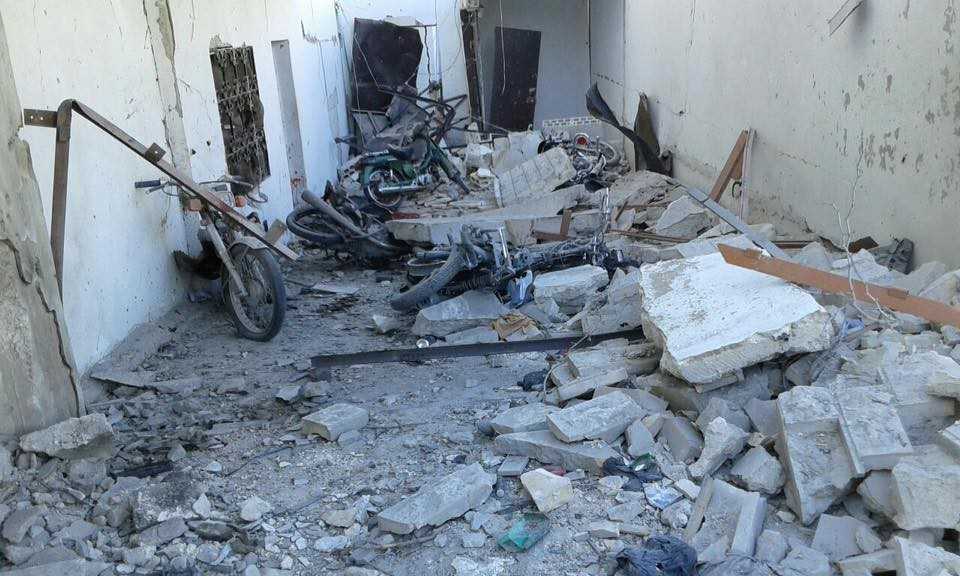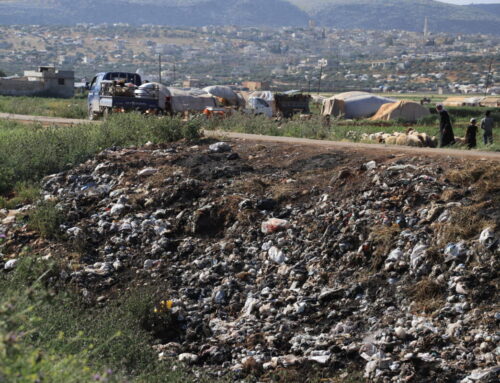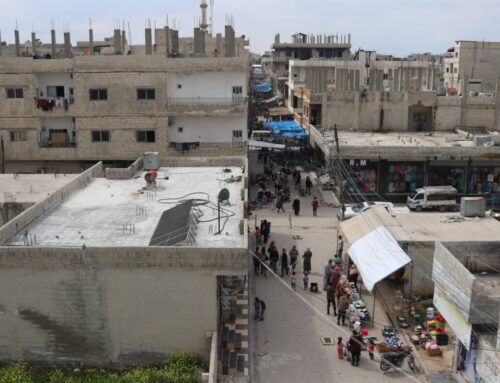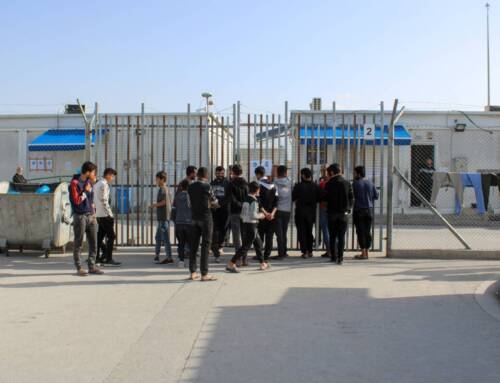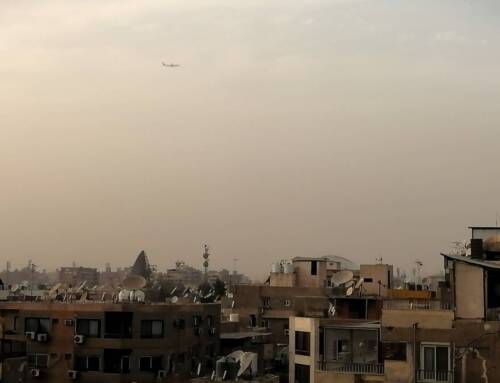Residents left with few options after airstrike destroys last clinic in north Hama: “Hilly terrain makes our area inaccessible”
AMMAN: Fatima, pregnant and nearing her delivery date, is starting […]
24 October 2016
AMMAN: Fatima, pregnant and nearing her delivery date, is starting to worry.
When a Russian airstrike reportedly destroyed the only clinic in the 19-year-old’s hometown of Latamna in rural northern Hama province last Saturday, she and other residents—many of them women and children—were left with nowhere to turn for professional medical care.
“Fatima is worried about how she will get to the hospital in [neighboring] Idlib province, which is too far away in case of an emergency,” her mother, 50-year-old Um Ahmad, tells Syria Direct, using a pseudonym out of fear of reprisal.
“It’s very difficult to find transportation, and the distance is especially hard on pregnant women,” says Um Ahmad.
Latamna’s sole medical clinic, founded just three months ago with funding from the Qatari Red Crescent, was meant to solve issues such as Fatima’s. Before, Latamna, a town of 7,000, had no doctors of its own. After its founding, the clinic hired a team of 15 medical staff, including general practitioners, as well as hard-to-find pediatricians and OB/GYNs, saving residents from arduous journeys across Hama’s embattled countryside.
Now, residents must travel 35 kilometers to reach the nearest hospital, which is in southern Idlib province’s Khan Shaikhoun, Ahmad al-Saleh, one of the destroyed clinic’s nurses, tells Syria Direct.
“We used to see around 60 patients every day, most of them women and children,” al-Saleh says. “There is no other clinic like this one in the area.”
This isn’t the first time Latamna’s short-lived health facility has been affected by violence in rebel-held rural northern Hama, a key stretch of hilly farmland on the frontline between opposition-held Idlib province to the north and regime territory to the south.
Since 2012, heavy fighting between regime and rebel forces has battered northern Hama, displacing tens of thousands from their homes. In 2015, Russian warplanes joined Assad’s, carpeting the area with near-daily airstrikes. The bombings intensified last month, as regime and Russian forces sought to hold back a rebel offensive in the area.
“We’ve had to temporarily stop working at times because of intense fighting and bombing,” says al-Saleh. “However, this is the first time that the center has had to shut down completely.”
The closure is already hurting families in the area. Mahmoud, a civil defense volunteer from Latamna, says his wife, pregnant with their second child, had relied on the clinic’s OB/GYNs for a safe delivery.
“My wife is getting closer to her delivery date,” Mahmoud tells Syria Direct. “It will be very hard to get her to a hospital in Idlib when it’s time for her to have the baby.”
Mahmoud’s 10-year-old son, who was born with diabetes, also depended on Latamna’s medical clinic. “Before, I used to take my son with me to the clinic in Latamna to get his insulin medication,” Mahmoud says. “Now, I’ll have to travel all the way to the hospital in Khan Shaikhoun every two weeks to bring him insulin.”
Mahmoud has no car. Forced to walk the 35-kilometer journey to Khan Shaikhoun, he says the trip takes him six hours one way hiking through the hilly countryside.
“Losing the medical clinic has been a major burden for my family,” says Mahmoud.
‘We don’t know whether new supplies will be sent’
It is not clear wither the Qatari Red Crescent will reopen the clinic. On Sunday, the humanitarian organization released a statement saying that it “will not be discouraged from pursuing its humanitarian mission in Syria.”
The statement comes as much of the clinic’s medical equipment lies in ruins, crushed by an airstrike that killed five patients.
The people in the waiting room, which was struck directly, were killed immediately, says al-Saleh, the nurse. Five people—a mother, a father and their child, as well as second mother and her young daughter—died while sitting near the main door, awaiting medical treatment.

A sixth patient, “an 11-year-old girl,” died from her wounds while on her way to a nearby field hospital, the nurse al-Saleh says.
Infant incubators, an ultrasound machine and shattered windows were strewn amid the building’s rubble as the outer walls crumbled, somehow sparing most of the forty staff and patients inside, al-Saleh said, who was in the children’s clinic when the shell hit.
The ambulance and much of the medical equipment, as well as the building’s water and electricity systems, were destroyed, rendering the clinic unusable.
“We don’t know whether new supplies will be sent to us,” says al-Saleh.
For Fatima, who is set to give birth to her child in a matter of days, the clinic’s loss of medical equipment has destroyed her hopes for a safe, clean delivery close to home.
Fatima must now give birth at the hospital in Khan Shaikhoun—that is, if she can reach it in time.
“The hilly terrain makes our area inaccessible,” says her mother, Um Ahmad, “and the the nearest hospital is very far away.”
“She is very nervous about having this baby.”

